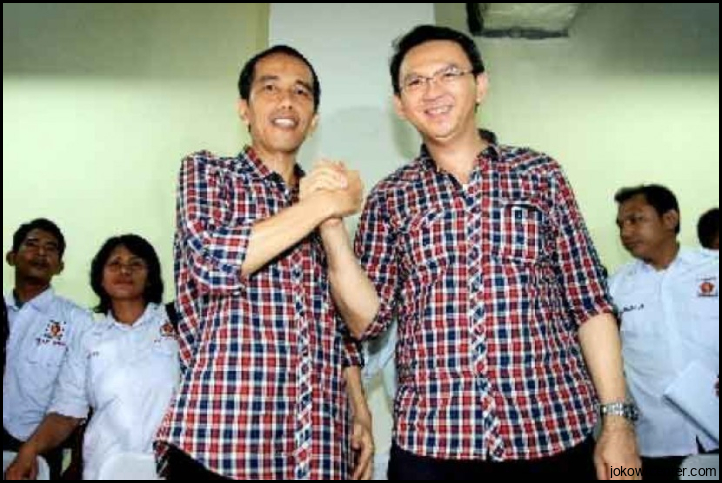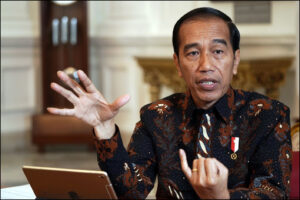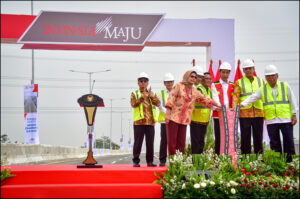Jokowi Ahok Year One Full Speed Bureaucracy
As the first year of President Joko Widodo (Jokowi) and Vice President Basuki Tjahaja Purnama (Ahok)’s administration comes to a close, it is crucial to evaluate the progress made in tackling bureaucratic challenges. The duo, elected on a platform of reform and efficiency, pledged to streamline Indonesia’s bureaucracy in order to spur economic growth and improve public services. In this article, we delve into the achievements, setbacks, and future prospects of Jokowi Ahok’s efforts in reforming the country’s bureaucracy.
The Battle Against Systemic Inefficiency
Revitalizing Public Service Delivery
Efforts to revitalize public service delivery have been at the forefront of Jokowi Ahok’s agenda. Through various initiatives such as “One Stop Service” centers and online platforms, the administration aimed to simplify bureaucratic processes and reduce waiting times for citizens. These centers consolidate multiple services under one roof, minimizing bureaucratic red tape.
Breaking Down Silos: Enhancing Interagency Coordination
One significant issue plaguing Indonesia’s bureaucracy was the lack of coordination between different government agencies. To address this issue head-on, Jokowi Ahok established mechanisms that foster interagency collaboration. By breaking down silos and promoting information-sharing between ministries and departments, they sought to improve decision-making processes and eliminate redundancies.
Achievements in Year One: Progress Amidst Challenges
Digitalization Initiatives: Towards an E-Government Framework
In their first year in office, Jokowi Ahok prioritized digitalization initiatives to modernize governmental processes. The implementation of e-governance systems aimed to integrate various government services into a unified digital platform. This endeavor faced numerous challenges, such as outdated infrastructure and resistance to change. However, notable progress has been made in transforming public service delivery through the utilization of technology.
Improving Civil Service Competence
Recognizing the importance of a competent civil service, Jokowi Ahok actively worked towards enhancing the capabilities of public servants. Efforts were made to attract qualified individuals through transparent recruitment processes and competitive salaries. Additionally, training programs were introduced to equip civil servants with the necessary skills to meet the demands of a rapidly evolving society.
Key Setbacks and Ongoing Challenges
Resistance from Bureaucratic Inertia
Despite Jokowi Ahok’s relentless efforts, resistance from within the bureaucracy remains a significant challenge. Long-established practices and vested interests often hinder the implementation of reforms. Overcoming bureaucratic inertia demands persistence and political will on multiple fronts.
Institutional Constraints: Limited Resources and Capacity
The transformation of Indonesia’s bureaucracy requires substantial resources and capacity-building efforts. Limited funding coupled with inadequate infrastructure presents significant obstacles in achieving comprehensive reform. Addressing these institutional constraints necessitates strategic partnerships with international organizations and private stakeholders.
Future Prospects: A Vision for Streamlined Governance
Anchoring Reform in Public Awareness: The Importance of Citizen Engagement
In order to sustain meaningful reform, citizen engagement must be at the heart of any future endeavor. Jokowi Ahok’s administration must continue to communicate their vision for streamlined governance directly with the Indonesian people. By involving citizens in decision-making processes and ensuring transparency, a culture of accountability can be nurtured.
Political Continuity: Nurturing Collaboration Beyond One Term
Sustaining reform efforts beyond the first term is crucial to achieving lasting change in Indonesia’s bureaucracy. Building upon the achievements of the initial year, Jokowi Ahok’s administration should prioritize nurturing collaboration with future administrations. This continuity will prevent reforms from being abandoned or reversed due to political transitions.
In Conclusion
Despite the formidable challenges faced by Jokowi Ahok in their first year, significant progress has been made to bring about a more efficient and responsive bureaucracy. Digitalization initiatives, improvements in civil service competence, and ongoing efforts to overcome resistance are just a few examples of their commitment to reform. As Indonesia looks towards the future, it is essential that these transformative measures continue, guided by public engagement and long-term political collaboration.






